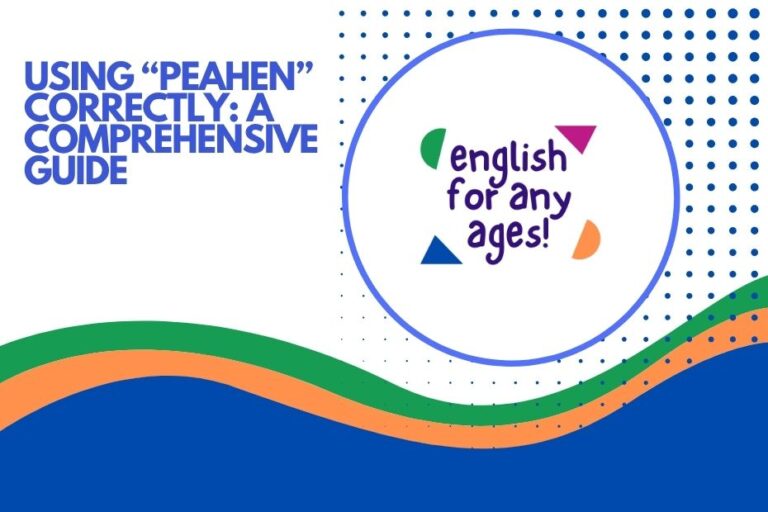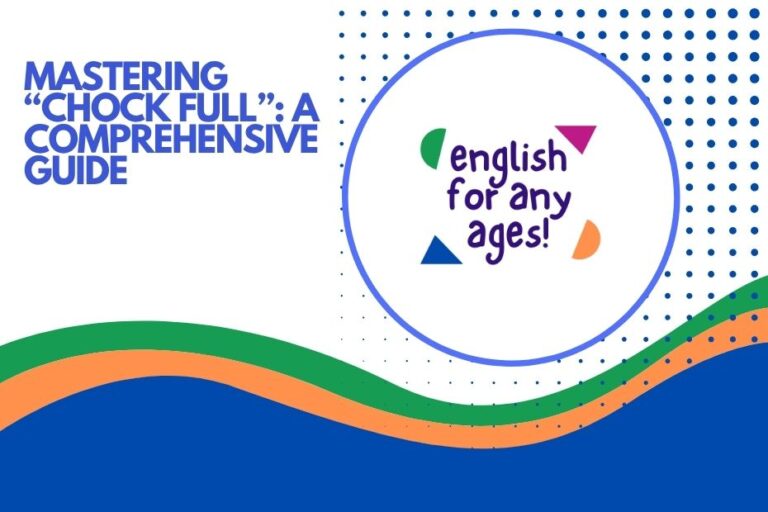Mastering “Turn In”: A Comprehensive Guide to Its Usage
Understanding the various meanings and applications of the phrasal verb “turn in” is crucial for effective communication in English. This seemingly simple phrase can denote actions ranging from submitting assignments to informing on someone, making its correct usage essential for clarity.
This article aims to provide a thorough exploration of “turn in,” covering its definitions, structural nuances, usage rules, and common mistakes. This guide is beneficial for English language learners of all levels, from beginners seeking to grasp basic verb usage to advanced speakers aiming to refine their understanding of phrasal verbs.
By mastering the intricacies of “turn in,” you can enhance your fluency and precision in both written and spoken English. This article will equip you with the knowledge and practice needed to confidently use “turn in” in a variety of contexts.
Table of Contents
- Introduction
- Definition of “Turn In”
- Structural Breakdown
- Types and Categories of Usage
- Examples of “Turn In” in Sentences
- Usage Rules
- Common Mistakes
- Practice Exercises
- Advanced Topics
- FAQ
- Conclusion
Definition of “Turn In”
“Turn in” is a versatile phrasal verb with multiple meanings, each used in different contexts. Understanding these nuances is key to using the phrase correctly.
To Submit
One of the most common meanings of “turn in” is to submit something, such as an assignment, application, or report. It implies handing something over to an authority or someone in a position to receive it.
To Report
“Turn in” can also mean to report someone to the authorities, often for wrongdoing. This usage carries a connotation of informing on someone, sometimes with negative implications.
To Go to Bed
In more informal contexts, “turn in” means to go to bed. This usage is often found in casual conversation and literature.
To Return
Less commonly, “turn in” can mean to return something, especially lost or found items. This is similar to “hand in” but often implies returning something to its rightful owner or a designated place.
Structural Breakdown
Understanding the structure of “turn in” as a phrasal verb is essential for correct usage. It’s crucial to know whether it’s separable and how word order affects its meaning.
Separable Phrasal Verb
“Turn in” is a separable phrasal verb in some of its usages, particularly when it means “to submit” or “to return.” This means that the verb “turn” and the particle “in” can be separated by the object of the verb.
Word Order with Pronouns
When the object is a pronoun (e.g., it, them, him), the pronoun *must* go between “turn” and “in.” This is a strict rule in English grammar.
Types and Categories of Usage
“Turn in” is used in various settings, each with its own specific connotations. Recognizing these contexts helps in choosing the right meaning.
Academic Context
In academic settings, “turn in” typically refers to submitting assignments, papers, or projects. This usage is common in schools, colleges, and universities.
Professional Context
In a professional environment, “turn in” can refer to submitting reports, documents, or resignation letters. It often implies a formal submission process.
Legal Context
In legal contexts, “turn in” means reporting someone to the authorities, often in the context of criminal activity. This usage carries a serious tone.
Informal/Everyday Context
In everyday conversation, “turn in” can mean going to bed or returning a lost item. This usage is more relaxed and casual.
Examples of “Turn In” in Sentences
The following examples illustrate the different meanings and usages of “turn in” in various contexts. Pay close attention to the surrounding words and the overall meaning of the sentences.
Examples of “Turn In” Meaning “Submit”
This table provides examples of “turn in” used in the sense of “submit,” showcasing its application in various academic and professional scenarios.
| Sentence | Context |
|---|---|
| “Please turn in your essays by Friday.” | Academic – Assignment submission |
| “I need to turn in my application for the scholarship.” | Academic – Application submission |
| “The team had to turn in the report to the manager.” | Professional – Report submission |
| “Don’t forget to turn in your timesheets at the end of the week.” | Professional – Document submission |
| “She turned in her resignation letter yesterday.” | Professional – Resignation submission |
| “The students were reminded to turn in their projects on time.” | Academic – Project submission |
| “He turned in his expense report to the accounting department.” | Professional – Report submission |
| “Did you remember to turn in your permission slip for the field trip?” | Academic – Permission slip submission |
| “The company requires employees to turn in their security badges upon termination.” | Professional – Item submission |
| “All participants must turn in their completed surveys by next week.” | General – Survey submission |
| “Make sure you turn it in before the deadline.” | Academic – Assignment submission (separable) |
| “She turned it in early to get feedback.” | Academic – Assignment submission (separable) |
| “They turned them in just in the nick of time.” | Professional – Report submission (separable) |
| “He turned it in without any issues.” | Professional – Document submission (separable) |
| “She turned it in, hoping for a positive response.” | Professional – Resignation submission (separable) |
| “The students turned them in, eager to see their grades.” | Academic – Project submission (separable) |
| “He turned it in with a sense of accomplishment.” | Professional – Report submission (separable) |
| “Did you remember to turn it in before leaving?” | Academic – Permission slip submission (separable) |
| “The company requires employees to turn them in upon termination.” | Professional – Item submission (separable) |
| “All participants must turn them in by next week.” | General – Survey submission (separable) |
| “The designer turned in the final designs for approval.” | Professional – Project submission |
| “The witness turned in a written statement to the police.” | Legal – Statement submission |
| “The athlete turned in a stellar performance at the competition.” | Sports – Performance (metaphorical) |
Examples of “Turn In” Meaning “Report”
This table illustrates the usage of “turn in” to mean “report someone,” often to the authorities. Note the serious or negative connotation in these examples.
| Sentence | Context |
|---|---|
| “She decided to turn in her neighbor for illegal dumping.” | Legal – Reporting illegal activity |
| “He threatened to turn in his colleague for stealing company secrets.” | Professional – Reporting theft |
| “The witness felt obligated to turn in the suspect to the police.” | Legal – Reporting a suspect |
| “If you know about the crime, you should turn in the perpetrators.” | Legal – Reporting criminals |
| “The anonymous tipster turned in the drug dealers to the authorities.” | Legal – Reporting drug activity |
| “He was afraid his accomplice would turn him in to avoid jail time.” | Legal – Reporting an accomplice |
| “She turned in the corrupt official to the investigative journalists.” | Legal/Political – Reporting corruption |
| “The whistleblower chose to turn in her company for environmental violations.” | Legal/Environmental – Reporting violations |
| “He turned in his friend after discovering his involvement in the robbery.” | Legal – Reporting involvement in a crime |
| “The informant agreed to turn in the gang members in exchange for protection.” | Legal – Reporting gang activity |
| “She turned him in without hesitation.” | Legal – Reporting illegal activity (separable) |
| “He threatened to turn her in if she didn’t comply.” | Professional – Reporting theft (separable) |
| “The witness felt obligated to turn him in immediately.” | Legal – Reporting a suspect (separable) |
| “If you know about the crime, you should turn them in.” | Legal – Reporting criminals (separable) |
| “The anonymous tipster turned them in to the authorities.” | Legal – Reporting drug activity (separable) |
| “He was afraid his accomplice would turn him in soon.” | Legal – Reporting an accomplice (separable) |
| “She turned him in to the investigative journalists.” | Legal/Political – Reporting corruption (separable) |
| “The whistleblower chose to turn them in for environmental violations.” | Legal/Environmental – Reporting violations (separable) |
| “He turned him in after discovering his involvement.” | Legal – Reporting involvement in a crime (separable) |
| “The informant agreed to turn them in for protection.” | Legal – Reporting gang activity (separable) |
| “The ethical hacker decided to turn in the security vulnerabilities to the company.” | Professional – Reporting security vulnerabilities |
| “The student turned in the cheater to the professor to uphold academic integrity.” | Academic – Reporting cheating |
Examples of “Turn In” Meaning “Go to Bed”
This table provides examples of “turn in” used informally to mean “go to bed.” This usage is common in casual conversation and literature.
| Sentence | Context |
|---|---|
| “I’m feeling tired; I think I’ll turn in early tonight.” | Informal – Expressing tiredness |
| “She usually turns in around 10 PM on weekdays.” | Informal – Describing a routine |
| “After a long day of hiking, they decided to turn in as soon as they reached the campsite.” | Informal – Describing exhaustion |
| “He told his kids to turn in because it was getting late.” | Informal – Instructing children |
| “I’m going to turn in; goodnight!” | Informal – Saying goodnight |
| “She turned in with a good book and a cup of tea.” | Informal – Describing a bedtime routine |
| “He couldn’t wait to turn in after the exhausting party.” | Informal – Describing relief |
| “They turned in, hoping for a better day tomorrow.” | Informal – Expressing hope |
| “She decided to turn in instead of watching another episode.” | Informal – Making a decision |
| “He turned in late because he was working on a project.” | Informal – Explaining a late bedtime |
| “I’m too exhausted to do anything else; I’m going to turn in.” | Informal – Expressing extreme tiredness |
| “She turns in at the same time every night, without fail.” | Informal – Describing a strict routine |
| “After the concert, everyone was ready to turn in.” | Informal – Describing post-event exhaustion |
| “He told his guests it was time to turn in, hinting that the party was over.” | Informal – Suggesting bedtime to guests |
| “I’m going to turn in; see you in the morning!” | Informal – Saying goodnight (more enthusiastic) |
| “She turned in early, dreaming of her upcoming vacation.” | Informal – Describing a pleasant bedtime thought |
| “He couldn’t wait to turn in and escape the noise of the city.” | Informal – Describing a desire for quiet |
| “They turned in, grateful for a comfortable bed.” | Informal – Expressing gratitude |
| “She decided to turn in and catch up on sleep.” | Informal – Making a decision to prioritize sleep |
| “He turned in much later than usual due to a late-night meeting.” | Informal – Explaining a deviation from routine |
Examples of “Turn In” Meaning “Return”
This table illustrates the usage of “turn in” to mean “return” something, particularly lost or found items. This usage is less common than the others.
| Sentence | Context |
|---|---|
| “If you find a lost wallet, please turn it in to the front desk.” | General – Returning a found item |
| “She decided to turn in the keys she found in the parking lot.” | General – Returning found keys |
| “He turned in the library book that was overdue.” | General – Returning a borrowed item |
| “Please turn in any equipment you are no longer using.” | Professional – Returning company property |
| “She turned in the confidential documents to her supervisor.” | Professional – Returning sensitive materials |
| “If you no longer need the uniform, turn it in to the supply room.” | Professional – Returning a uniform |
| “He turned in the evidence he found to the investigators.” | Legal – Returning evidence |
| “She decided to turn in the stolen goods anonymously.” | Legal – Returning stolen items |
| “Please turn in your old textbooks at the end of the semester.” | Academic – Returning textbooks |
| “He turned in the borrowed tools to his neighbor.” | General – Returning borrowed tools |
| “If you find any personal belongings, please turn them in immediately.” | General – Returning found items (separable) |
| “She decided to turn them in to ensure they were safe.” | General – Returning found keys (separable) |
| “He turned it in to avoid further late fees.” | General – Returning a borrowed item (separable) |
| “Please turn it in once you’ve completed the project.” | Professional – Returning company property (separable) |
| “She turned them in to maintain confidentiality.” | Professional – Returning sensitive materials (separable) |
| “If you no longer need it, turn it in as soon as possible.” | Professional – Returning a uniform (separable) |
| “He turned it in to help with the investigation.” | Legal – Returning evidence (separable) |
| “She decided to turn them in anonymously to avoid attention.” | Legal – Returning stolen items (separable) |
| “Please turn them in after the final exam.” | Academic – Returning textbooks (separable) |
| “He turned them in to show his appreciation.” | General – Returning borrowed tools (separable) |
Usage Rules
Adhering to specific usage rules ensures clarity and grammatical correctness when using “turn in.”
Tense Consistency
Maintain consistent tense throughout a sentence or paragraph when using “turn in.” For example, if you start in the past tense, continue in the past tense.
Prepositions and Context
Be mindful of the prepositions used in conjunction with “turn in.” The meaning can change based on the surrounding context. For example, “turn in to” implies reporting *to* someone, while “turn in” alone implies submitting or going to bed.
Formal vs. Informal Usage
Consider the level of formality required. While “turn in” is generally acceptable in most contexts, more formal situations might require synonyms like “submit” or “report.” The “go to bed” meaning is considered quite informal.
Common Mistakes
Avoiding common mistakes is crucial for mastering the use of “turn in.” Here are some frequent errors to watch out for.
Incorrect Word Order
Incorrect: “Turn in it.”
Correct: “Turn it in.”
Remember that when the object is a pronoun, it *must* go between “turn” and “in.”
Using the Wrong Preposition
Incorrect: “Turn in for the police.”
Correct: “Turn in to the police.”
Using the correct preposition is crucial to convey the intended meaning. In this case, “to” indicates the recipient of the report.
Misunderstanding the Meaning
Incorrect: “I’m going to turn in my homework to my bed.” (Intended meaning: I’m going to bed.)
Correct: “I’m going to turn in.” or “I’m going to go to bed.”
Ensure you’re using the correct meaning of “turn in” based on the context. Confusing the different meanings can lead to misunderstandings.
Practice Exercises
These exercises will help you solidify your understanding of “turn in” through practical application.
Exercise 1: Fill in the Blanks
Fill in the blanks with the correct form of “turn in.”
| Question | Answer |
|---|---|
| 1. You must ______ your assignments by Friday. | turn in |
| 2. She decided to ______ the lost wallet to the authorities. | turn in |
| 3. I’m feeling tired; I think I’ll ______ early tonight. | turn in |
| 4. He was tempted to ______ his colleague for stealing. | turn in |
| 5. Don’t forget to ______ your permission slips tomorrow. | turn in |
| 6. If you find any suspicious activity, you should ______ it to the police. | turn in |
| 7. After a long day, all I wanted to do was ______ and rest. | turn in |
| 8. The company requires employees to ______ their badges upon leaving. | turn in |
| 9. She decided to ______ the evidence she found to the detective. | turn in |
| 10. I need to ______ my report before the meeting. | turn in |
Exercise 2: Sentence Transformation
Rewrite the following sentences using “turn in” while maintaining the original meaning.
| Original Sentence | Rewritten Sentence |
|---|---|
| 1. Please submit your essays by the end of the week. | Please turn in your essays by the end of the week. |
| 2. She reported her neighbor to the authorities for noise complaints. | She turned in her neighbor to the authorities for noise complaints. |
| 3. I’m going to bed now. | I’m going to turn in now. |
| 4. He returned the lost keys to the security guard. | He turned in the lost keys to the security guard. |
| 5. Make sure you hand in your assignments on time. | Make sure you turn in your assignments on time. |
| 6. The witness informed the police about the crime. | The witness turned in the perpetrators to the police. |
| 7. It’s getting late; I think the kids should go to bed. | It’s getting late; I think the kids should turn in. |
| 8. She gave the stolen jewelry back to the store anonymously. | She turned in the stolen jewelry to the store anonymously. |
| 9. The students must submit their projects by Friday afternoon. | The students must turn in their projects by Friday afternoon. |
| 10. He reported his boss for unethical behavior. | He turned in his boss for unethical behavior. |
Advanced Topics
For advanced learners, exploring idiomatic expressions and regional variations can further enhance understanding of “turn in.”
Idiomatic Expressions with “Turn In”
While “turn in” itself is a phrasal verb, it doesn’t frequently appear in complex idiomatic expressions. However, understanding the nuances of its core meanings can help in interpreting related phrases.
Regional Variations
The usage and frequency of “turn in” can vary slightly across different English-speaking regions. While the core meanings remain consistent, some regions might prefer alternative phrasal verbs or expressions.
FAQ
Here are some frequently asked questions about using “turn in,” with detailed answers to clarify any remaining confusion.
- Is “turn in” separable in all cases?
No, “turn in” is only separable when it means “to submit” or “to return.” When it means “to go to bed” or “report,” it is not separable. For example, you can say “turn the assignment in” or “turn it in” (separable), but you can’t say “turn early in” when you mean “go to bed early.” - Can I use “turn in” in formal writing?
It depends on the context. When “turn in” means “submit,” it is generally acceptable in formal writing, though “submit” might be preferred for its more formal tone. However, when it means “go to bed,” it is best to avoid it in formal writing and use “retire” or “go to bed” instead. - What’s the difference between “turn in” and “hand in”?
“Turn in” and “hand in” are often interchangeable when they mean “to submit.” However, “hand in” might imply a more direct, physical handover, while “turn in” can be used more broadly, including electronic submissions. The choice between them is often a matter of personal preference or regional variation. - Is it correct to say “turn in myself” when reporting to the police?
While grammatically correct, it’s more common to say “turn myself in” in this context. The reflexive pronoun “myself” usually goes between “turn” and “in” for emphasis or clarity. - What are some alternatives to “turn in” for “go to bed”?
Alternatives to “turn in” for “go to bed” include “retire,” “go to sleep,” “go to bed,” “hit the hay,” and “call it a night.” The best choice depends on the level of formality and the desired tone. - When should I use ‘turn in’ versus ‘report’ to the authorities?
While both can mean informing authorities, ‘turn in’ often implies handing over someone suspected of wrongdoing. ‘Report’ is broader and can refer to providing information about an incident or situation, not necessarily a person. - Can ‘turn in’ be used metaphorically?
Yes, though less commonly. For example, in sports, someone might say “The athlete turned in a fantastic performance,” meaning they delivered or submitted an outstanding effort. - Is there a difference between ‘turn in’ and ‘rat out’?
‘Rat out’ is a more informal and often derogatory term for reporting someone, implying betrayal or disloyalty. ‘Turn in’ is more neutral and less judgmental.
Conclusion
Mastering the phrasal verb “turn in” requires understanding its multiple meanings, structural rules, and contextual nuances. From submitting assignments to reporting wrongdoings and even simply going to bed, “turn in” is a versatile phrase that plays a significant role in everyday communication.
By paying attention to word order, tense consistency, and the level of formality, you can confidently use “turn in” in a variety of situations.
Remember to practice using “turn in” in different contexts to solidify your understanding. Pay attention to how native speakers use the phrase and continue to refine your knowledge.
With consistent effort, you can master “turn in” and enhance your overall fluency in English.






